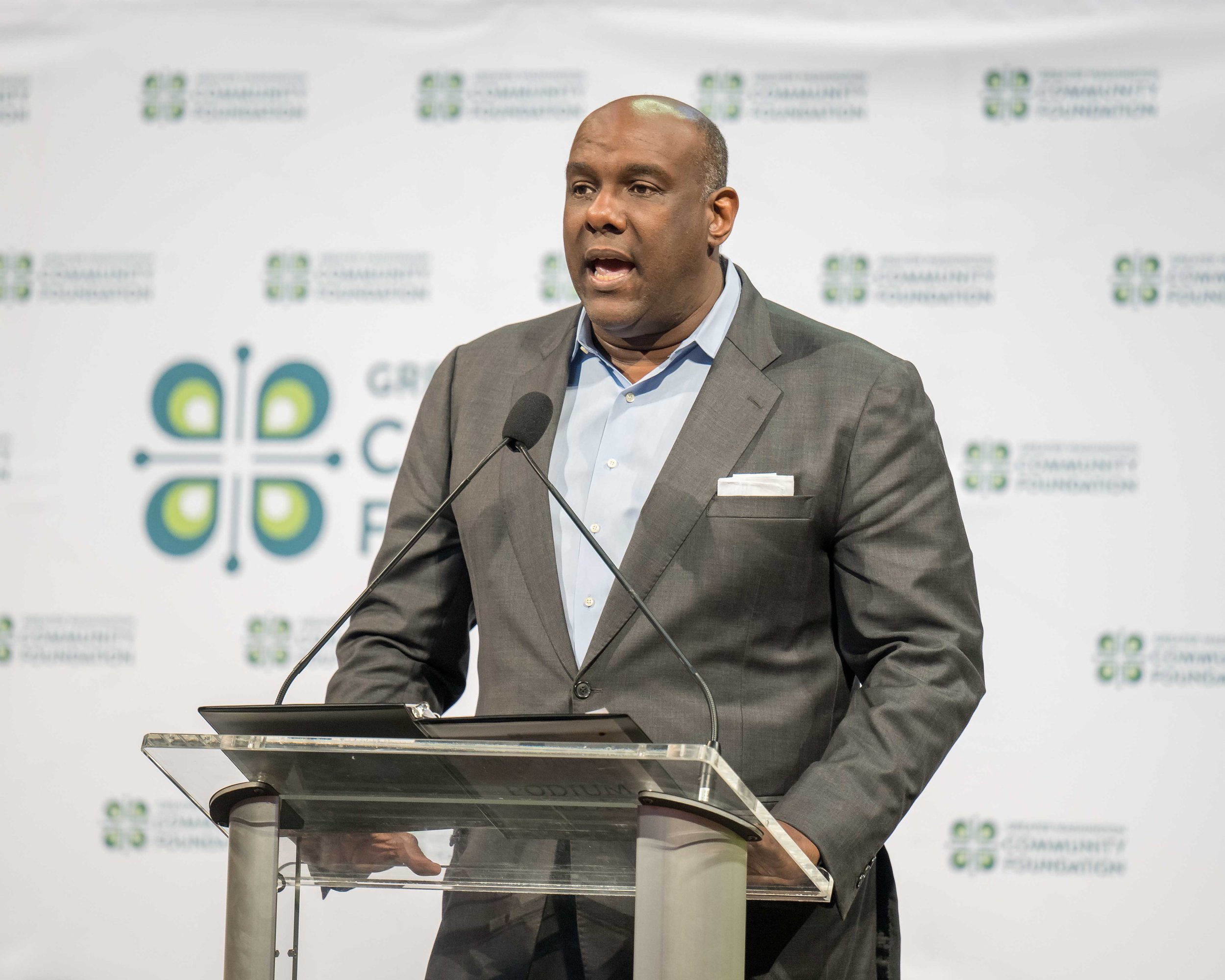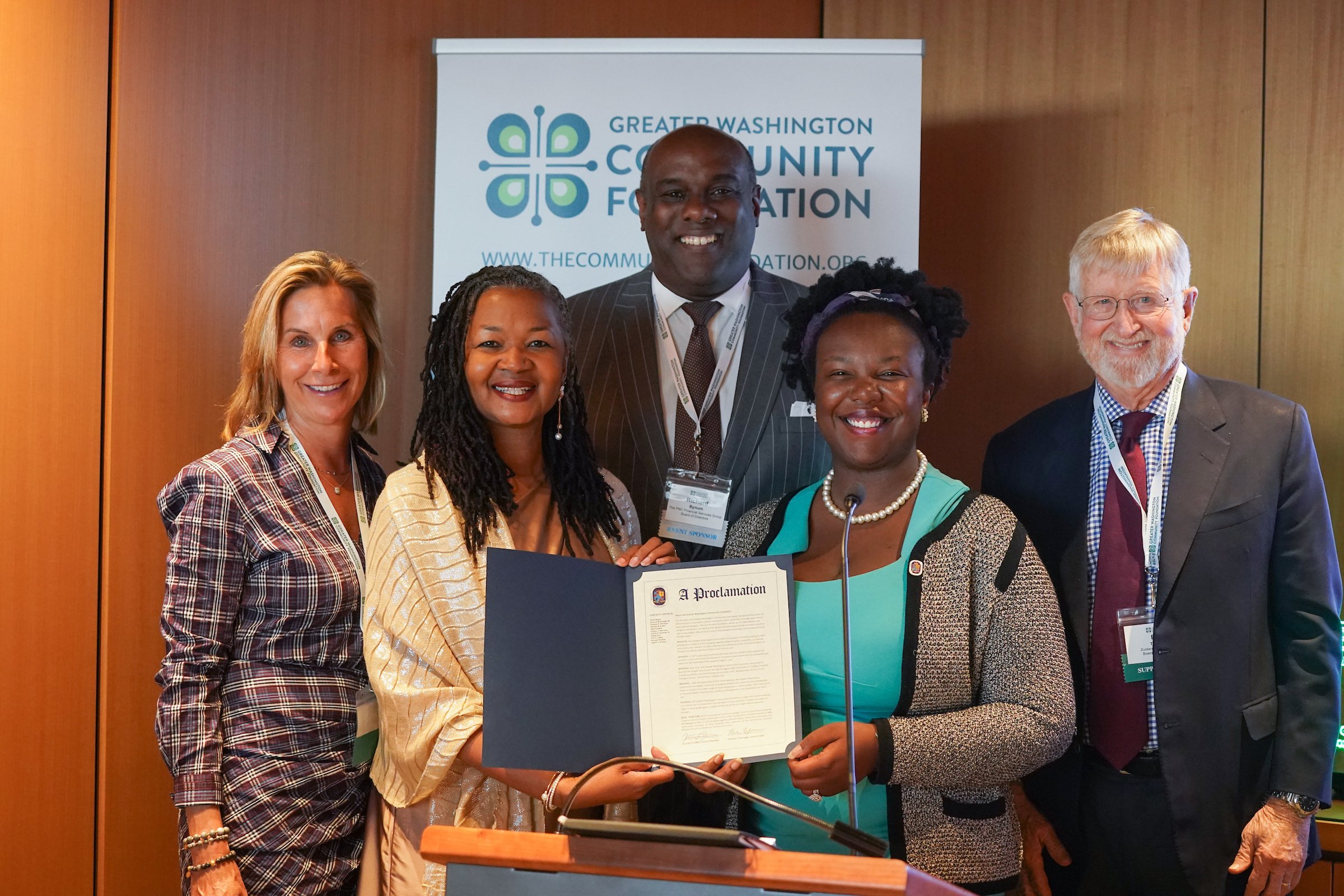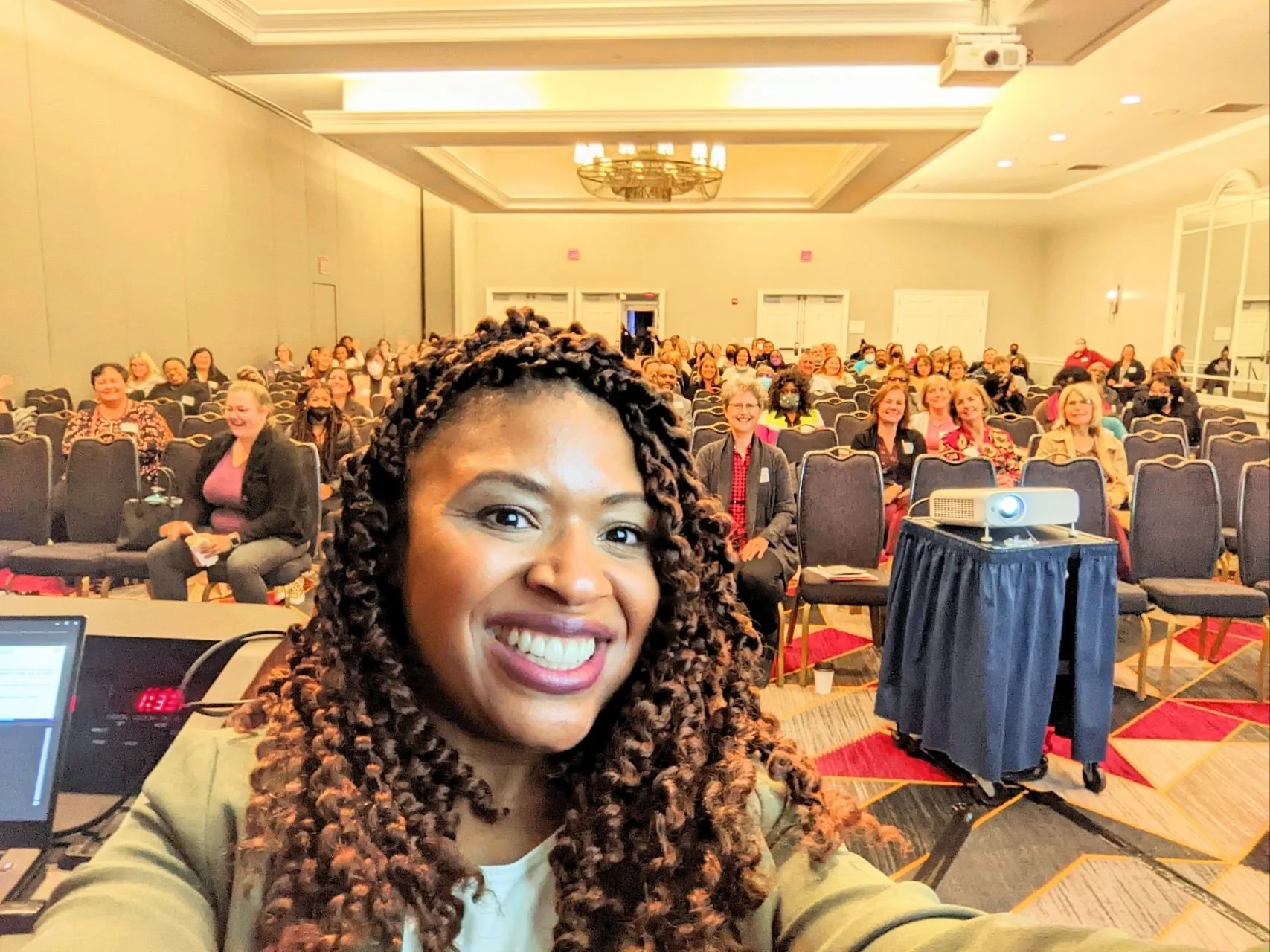As nonprofit leaders in Greater Washington, Rachna Singal Krishnan, Hugo Mogollon, and Tiffany Williams are invested in improving and advancing their organizations—and themselves. This year, we’re excited to announce them as our fifth annual David Bradt Nonprofit Leadership Awardees. Krishnan, CEO & Executive Director of The Women’s Center, Hugo Mogollon, Executive Director of FRESHFARM, and Williams, CEO of Martha’s Table, will each receive up to $15,000 to attend an intensive executive training program of their choice.
Launched in 2017 as a salute to former trustee David Bradt and his many years of service to our community, the David Bradt Nonprofit Education Fund supports senior level nonprofit leaders in advancing their careers and leadership skills. Local business leader Alex Orfinger and Diane Tipton, David’s wife, established the Fund to surprise and honor David.
Tonia Wellons, President and CEO of the Greater Washington Community Foundation, extends her congratulations to this year’s class:
“Congratulations to the 2024 awardees! We are thankful for all you have done and will continue to do to strengthen our community. The Community Foundation is so pleased to support investments in exceptional nonprofit leaders and support the Fund’s impact in our region. Our thanks to David for the inspiration, and to Diane and Alex for creating such a wonderful way in which to honor him.”
Read on to meet these inspiring local leaders.
Rachna Singal Krishnan, CEO and Executive Director at The Women's Center since 2020, leads a dedicated team to significantly improve the mental health and well-being of all members of the community through counselling, education and support - regardless of ability to pay. During her leadership, The Women's Center successfully developed and implemented its first strategic plan that focused on creating a diverse workforce, aligning programs to meet the specific needs in our community, building a sound financial foundation, and evolving infrastructure and operations for sustainability and growth. Rachna received the 2021 Northern Virginia Leadership COVID19 Hero Award from Leadership Fairfax and The Women's Center received an award from the Human Services Alliance of Greater Prince William. Rachna earned her MBA and BS in Economics from The Wharton School of Business at the University of Pennsylvania where she graduated with honors. She plans to use the award to attend Harvard Business School's Program on Strategic Perspectives in Nonprofit Management.
Hugo Mogollon is the Executive Director of FRESHFARM, a nonprofit improving food access in the DC Metro Area while creating opportunities for farmers in the mid-Atlantic region. He is a results-oriented leader with 15 years of management experience in multicultural settings. Under his leadership, FRESHFARM has become the country's third-largest network of farmers markets. He also developed an innovative low-infrastructure food distribution model connecting underserved communities to locally grown food, generating significant revenue for family farms. He holds a Master’s degree in Natural Resources and Leadership for Sustainability from Virginia Tech and has completed executive programs at Stanford University Graduate School of Business and Northwestern, Kellogg. Hugo proudly serves on the FARM Policy Committee at the Metropolitan Washington Council of Governments and has held various board leadership positions in regional and national food system organizations. Hugo plans to use the award to attend Kellogg’s executive program on Driving Organizational Change.
Tiffany Williams, Chief Executive Officer of Martha’s Table, is a visionary advocate and community champion with more than 25 years of experience as an education and nonprofit leader. A seasoned strategist, Tiffany has spent her career working to advance equitable and inclusive solutions for communities that have been historically underserved and is driven by the belief that every Washingtonian deserves the opportunity to thrive. Since 2017, Williams has held multiple leadership positions at Martha’s Table, including as Chief Program Officer, where she directed and designed the organization’s expanded offerings. Previously, Williams was Director of Healthy Start Education and Assistant Head of School at the National Child Research Center (NCRC). Originally from Harlem, NY, Tiffany has made DC her home and dedicated her career to community service. Her educational journey includes a Master’s in Organization Development from American University, a BA in Psychology from Lincoln University, PA, and a certification as a coach with the International Coaching Federation (ICF). Tiffany plans to use the award to participate in Leadership Greater Washington’s Signature Program Class of 2025.


































































